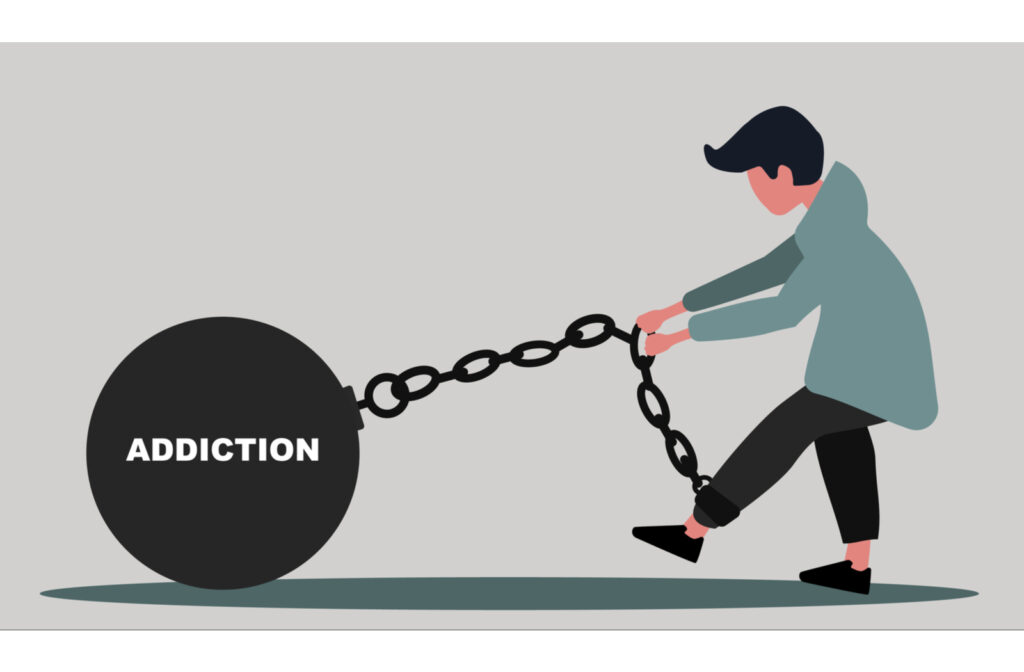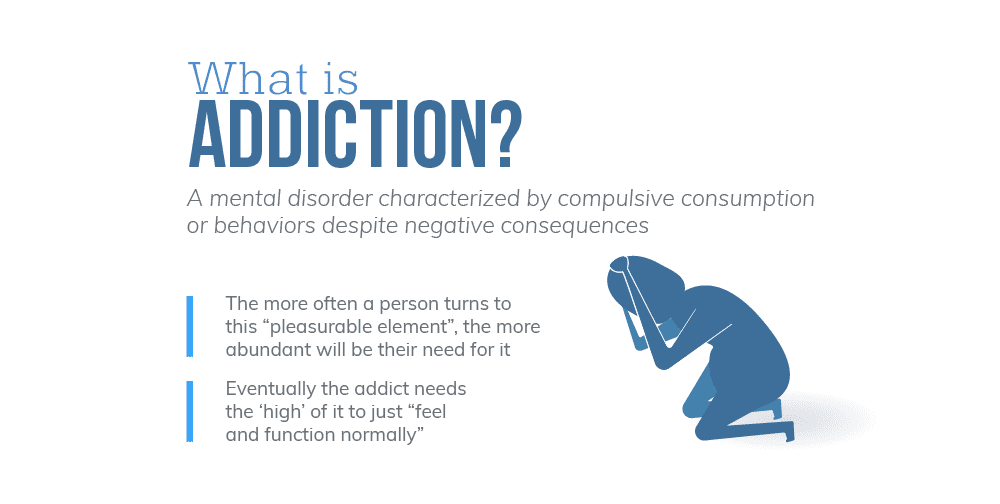Addiction / Substance Use
There are different types of addiction that an individual may be experiencing such as the use of harmful substances or the addiction to a behaviour. Once a person becomes compulsive with the use or overuse of a substance or behaviour, whether against the law or not, that is considered to be an addiction. Behavioural addiction is an addiction to a process, such as sex or gambling. Addictions to substances vary depending on the drug. Stimulants, Hallucinogenics, and Depressants are examples of different substance categories.

Behavioural Addiction vs Addiction to Substances
Behavioural Addiction
- Food (Eating)
- Sex
- Pornography
- Playing video games
- Working
- Working out
- Spiritual or Religious obsession
- Pain
- Cutting
- Shopping
(Tracy, 2022).
“Several behavioural problems (for example, gambling, stealing, shopping, and use of the internet) have been hypothesized to have similarities to substance addictions and there is interest in whether they could be usefully conceptualized as ‘behavioural addictions’ (i.e. people compulsively and dysfunctionally engage in an activity without exogenous drug administration)” (Holden, 2001).
From a psychological point of view, behavioural addiction includes more disorders such as obsessive thoughts, anxiety, depression, and withdrawal. These disorders that are a part of behavioural addictions affect crucial parts of life such as social relationships and school and can lead to isolation from friends and family and mental/physical stress (Alavi et al., 2012).
Addiction to Substances
- Alcohol
- Tobacco
- Opioids
- Prescription Drugs
- Cocaine
- Cannabis
- Meth
- Hallucinogens
(Tracy, 2022).
What is Addiction?
“Addiction is a primary, chronic disease of brain reward, motivation, memory and related circuitry . . . This is reflected in the individual pursuing reward and/or relief by substance use and other behaviours. The addiction is characterized by impairment in behavioural control, craving, inability to consistently abstain, and diminished recognition of significant problems with one’s behaviours and interpersonal relationships” (Tracy, 2022).
Addiction is a disease that causes harm to the person and the people around them. Addiction causes an individual to lose control and crave substances. An addict may deny that there is a problem and state that they are just having fun, regardless of how much pain they are causing themselves and others (Tracy, 2022).
“Behavioural science experts believe that all entities capable of stimulating a person can be addictive; and whenever a habit changes into an obligation, it can be considered as an addiction. Researchers also believe that there are a number of similarities as well as some differences between drug addiction and behavioural addiction diagnostic symptoms” (Alavi et al., 2012).

Alavi, S. S., Ferdosi, M., Jannatifard, F., Eslami, M., Alaghemandan, H., & Setare, M. (2012, April). Behavioral addiction versus substance addiction: Correspondence of psychiatric and psychological views. International journal of preventive medicine. https://www.ncbi.nlm.nih.gov/pmc/articles/PMC3354400/
Grant, J. E., & Chamberlain, S. R. (2014, May 10). Impulsive action and impulsive choice across substance and behavioural addictions: Cause or consequence? ScienceDirect. https://www.sciencedirect.com/science/article/abs/pii/S0306460314001348
Tracy, N. (2021, December 29). Types of addiction: List of addictions. HealthyPlace. https://www.healthyplace.com/addictions/addictions-information/types-of-addiction-list-of-addictions